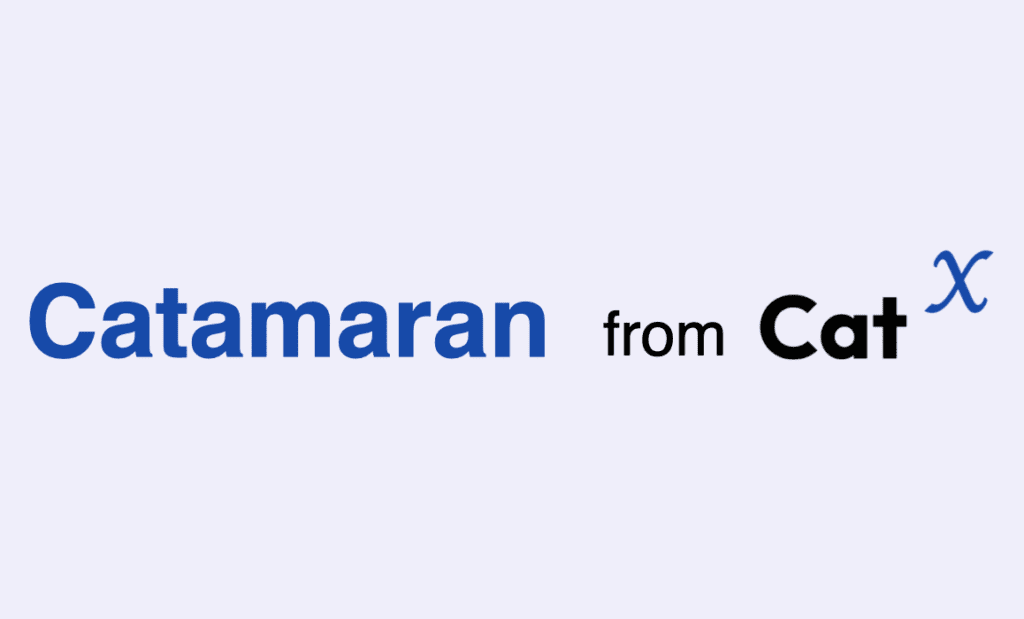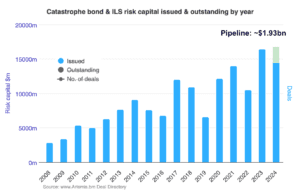CatX launches Catamaran AI, provides feedback on investor interest & pricing

CatX, a digital catastrophe and parametric risk exchange start-up, has launched a new artificial intelligence (AI) tool named Catamaran, which can create and analyse a reinsurance submission then provide rapid feedback on investor interest and pricing.
The stand-alone artificial intelligence-powered tool can be used by brokers and underwriters to prepare high-quality structured reinsurance submissions.
With the Catamaran AI, this can be achieved by uploading any existing documentation or modelling files, while the AI model can extract any data point to populate a digital submission that can be used to present risks to investors or reinsurers, CatX explained.
Most interesting though, is the fact Catamaran can then provide feedback on whether there is interest from the institutional investors using CatX’s platform in offering capacity to support the reinsurance deal.
In addition, the Catamaran AI can also provide indicative pricing, to support investor and reinsurer decision-making.
The Catamaran reinsurance submission tool can also provide an export of the information in a manner compatible with standard insurance file formats, such as MRCV3 or ACORD, CatX said.
CatX hopes that, with the use of Catamaran’s AI technology, the structured submissions can “help to make insurance opportunities appealing to a wider range of investors.”
Thanks to recently announced partnerships, CatX’s platform also allows users to run third-party risk models from providers such as RMS and Cybercube, so that risks can be presented in a more investor-friendly format.
Going into more detail CatX explained, “Investors and reinsurers will be able to use Catamaran to analyze incoming submissions and manage transaction pipelines. Investors can run analyses to extract key information about underlying portfolio and modelling data. They can also compare versions to identify similarities, differences, or changes in conditions and wordings. On the CatX platform, opportunities are matched with funds that define their investment preferences across minimum rates, cedents, underwriters, regions, and perils.”
“We have seen first-hand how effective structured digital submissions can be in securing better-priced capacity from institutional investors. They will help to grow the alternative capital market through enhanced transparency which supports decision-making and helps to attract a broader investor base,” explained Benedict Altier, CEO of CatX. “Artificial intelligence will play a key role in helping the industry improve standardization, while still requiring underwriters and brokers to review key details to ensure accuracy.”
“With Catamaran, we are not only improving the quality of submissions but also paving the way for more advanced underwriting processes,” added Lucas Schneider, CTO of CatX. “Our machine-readable submissions are designed to facilitate algorithmic underwriting, ensuring that opportunities are accurately matched with the right markets.”
“Catamaran is the easiest way to bring submissions to new capital sources. The tool can automatically build a comprehensive deal page containing structured transaction information, contracts and modelling files,” Felix Terpstra, Lead Engineer of CatX also said. “Automating the basics allows underwriters and brokers to focus on getting the details right, therefore producing higher quality submissions with quicker turnaround times.”
It’s a very interesting addition to the CatX platform offering, but perhaps a first step away, or slight detour, from the initial goal of becoming a risk placement and exchange tool, to connect risk to the capital markets.
A number of attempts to create true risk exchange functionality for the reinsurance market have been stymied by brokers in the past.
So, positioning to add value that can support the broker community’s operations is a shrewd move, as that is the best way to gain traction in reinsurance, by supporting the broker processes and making their lives easier, while allowing them to continue owning their client relationships.
It’s a particularly delicate balancing act, to innovate in the reinsurance transaction placement and syndication space, while not stepping on broker toes.






